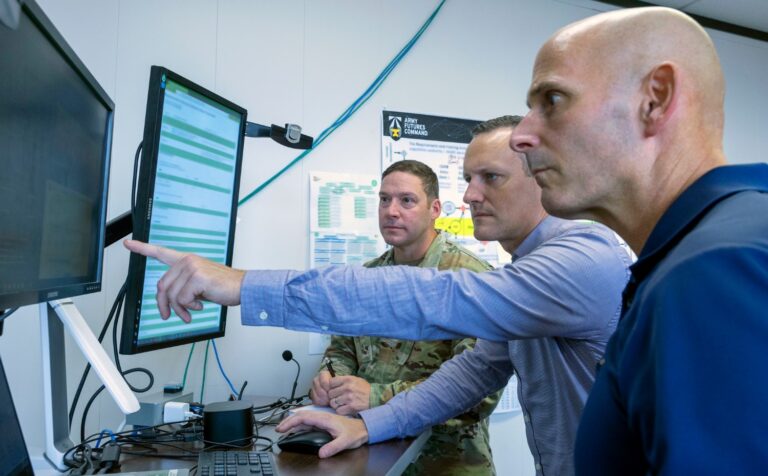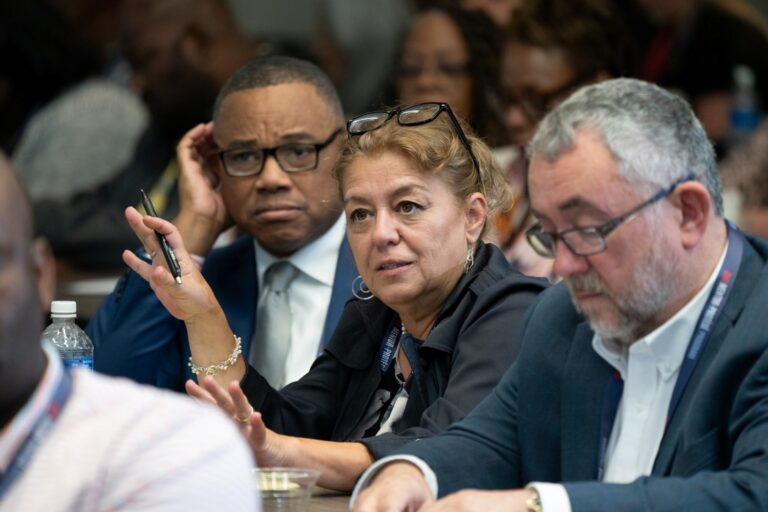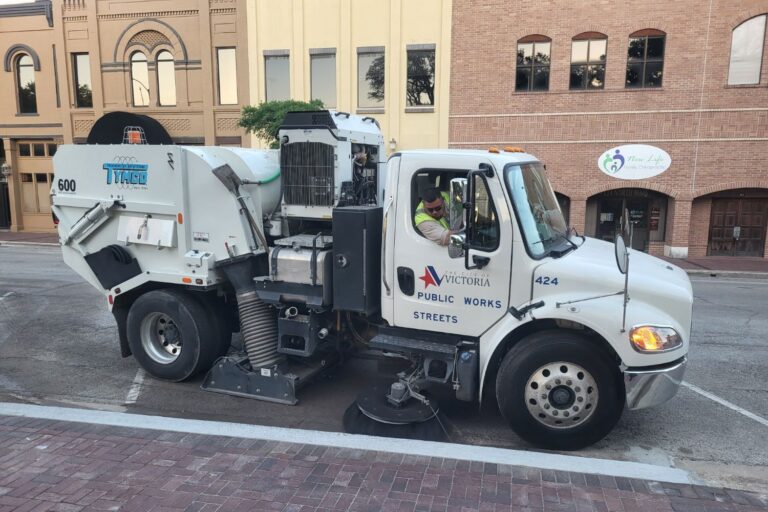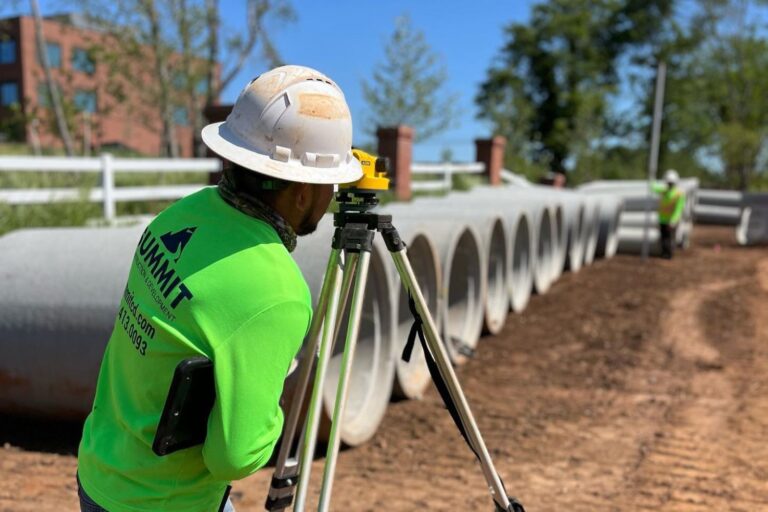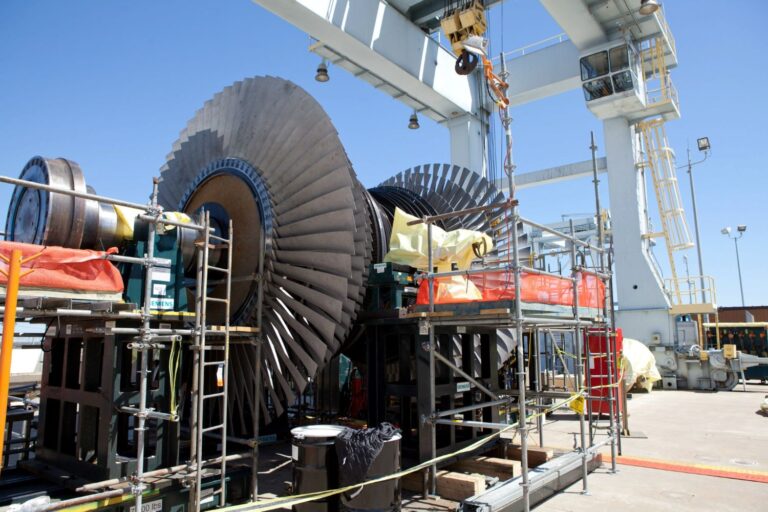DEN and Its Baggage System: Does $500M Package of Public Spending Flow Back to Local?
As a pivotal “powerhouse” for national and global economic prosperity, the sphere of aviation has always earned enormous attention from governmental agencies and businesses, especially when it comes to investments in the nation’s commercial aviation infrastructure. This also emerges as a “big headline” for the citizens as a whole as this directly relates to their interests.
DEN’s procurement on TSA Recapitalization & BHS Modernization project is not an exception!
On one hand, it’s claimed that the aerial navigation industry receives little or no taxpayer support as not all citizens are airport users. Yet, on the other hand, as debated by the USA Today, “in various ways and to various degrees, every airport on Earth is funded by its home government” – that is funded directly by its national taxpayers. And this is certainly true in DEN’s case.
Given that, the matter is not that DEN’s TSA Recapitalization & BHS Modernization project receives how much support from taxpayers. The ultimate question here is: Whether every taxpayer dollar spent is worth it?
Discovering DEN – Airline Hub That Clocks the Third-Highest World Traffic Amid Surges
Before demystifying this key question, let’s cast a glimpse over DEN – the rising destination from Midwest to West.
DEN as Key Pillar for Economic Growth
In the world’s largest aviation market, DEN – or Denver International Airport in full – is well acclaimed as the largest airport in the U.S. by total area (a whopping 53 square miles) and one of the busiest airline hubs. Its highest traffic is up to 69 million passengers annually in the last ten years.
On a yearly basis, DEN generates more than $33.5 billion and employs more than 30,000 people, making it Colorado’s primary economic engine. “DEN is proud to remain the top economic engine for the state of Colorado, especially as we celebrate our 25th year,” stated DEN ex-CEO Kim Day. “When DEN opened in 1995, we served around 31 million passengers, in 2019, we reached nearly 70 million passengers. Just as important are the many jobs created by DEN, which grew from 183,878 jobs in 2013 to 259,084 jobs in 2019. As we continue to grow, we are committed to bolstering Colorado’s future as an economic powerhouse.”

At present, this world’s third-busiest airport is operated by Phillip A. Washington who was nominated by Mayor Michael B. Hancock and confirmed by the Denver City Council as Denver International Airport’s current Chief Executive Officer.
DEN as Critical Connection Hub
Undoubtedly, DEN provides a vital connection between Colorado, domestic travel and the world through tourism and commerce. As Denver has grown exponentially, DEN’s enormous air service network does prove its indispensable importance, serving more than 215 nonstop destinations, including 28 international cities in 14 countries – and counting. As a result, more tourists are visiting Denver and more businesses are calling Denver their home, indicating the Mile-High City’s appeal.
When it comes to long-term vision, Phillip A. Washington promises to lead DEN further into this decade and beyond. Under his leadership, the US’s major airline hub claims to be the top stop for connecting flights for travelers from West to East and beyond. In a survey revealed by Travel Leaders Group from BBC media outlet, DEN currently holds a rank of #8 as the best airport for connecting flights.
DEN as The Would-To-Be Greenest Airport
Besides the aspiration to be the key economic stream and national growth driver, DEN aims to act sustainably and become the greenest airport in the world.
DEN community stewardship revolves around 3 key pillars, including impacts on the surrounding community, the passenger experience and employee success. DEN aims to empower everyone who works at DEN and community members who want to be part of DEN today or in the future. A major initiative of this goal is the development of a Center of Excellence and Equity in Aviation (CEEA). This is the first kind of center that can empower underserved communities with future employment or business opportunities in aviation at DEN.
Notably, DEN’s core business focuses on customer experience by emphasizing meeting the needs and desires of travelers. Based on their commitment in equity, diversity, and inclusion, DEN wants everyone has a seat at the table as well as respect and listens to all viewpoints.

This airport unwaveringly invests and grows its facility, making sure it can accommodate future increases in passenger traffic. In particular, the passenger traffic of DEN has been estimated to reach 100 million passengers in the next 8-10 years. Notwithstanding its strong network, DEN still aims to expand its global connections by solidifying Denver and DEN’s place on the world map by creating more business and tourism opportunities.
Thus, DEN announced its vision of strategy to prepare and amend the infrastructure and operation for the anticipated incremental passenger flow which is known as The Great Hall Project. In this project, DEN will be improved by enhancing security, providing space for airlines to grow, improving operational efficiency, and increasing the capacity of the Jeppesen terminal.
The Behind-the-Curtain Problem That 69 Million People Cannot See at DEN
After the horrific events on September 11th, 2001, stricter checked baggage screening procedures has been implemented. Particularly, Congress mandated that all passenger bags be screened for explosives before being put on a plane.
Besides, DEN does put travelers’ safety and security as their top priority as well as aims to elevate the customer experience. They focus primarily on the operational basics to move airplanes and passengers quickly. To keep DEN security compliant with the baseline of the national aviation industry and upgrade its operational excellence, the leadership team collaborated with the Transportation Security Administration (TSA) to monitor its existing bag screening equipment.

As part of a national program to keep this screening equipment technologically current, TSA has determined the equipment presently at DEN has reached the end of its useful life and needed to be replaced. Nevertheless, the new machines offered by TSA process bags at a significantly faster rate than the existing and therefore, fewer replacement machines will be provided.
The differences in bag processing rates and the number of machines needed require DEN to modify its baggage handling system (BHS) to accommodate the conveyor configurations, speeds, and controls interface necessary for the new machines to operate efficiently and effectively.
To go into further details, DEN will need to replace 31 Explosive Detection Screening devices currently installed on its BHS behind the baggage check-in counter. This “simple” replacement leads to a “complex” series of structure modifications at the airport from the conveyor system, tag reader system, and lift station between each terminal level to the visitor-interface baggage claim area.

Speaking of the funding source for this project, DEN has applied for Federal Aviation Administration (FAA) grant funding for the optional work included in the Request for Proposal (RFP) and contract for work in and on the baggage system. If FAA grant funding is fully obtained, DEN desires to fund in full, the whole scope of work will be assigned to the selected contractor.
Given the timing available for the FAA grants and that the optional work will be in the same system and physical location as recapitalization work, it is more time and cost-efficient to procure this work with the recapitalization work and have one contractor do all this baggage system upgrade assignment.
The Silent Heroes: Listen and Make It Happens
The coordination of this project is led by Shelly Berry – DEN’s Contract Administrator. Also, she is the sole point of contact with all communication conducted through Berry from vendors who bid on the project. As this TSA project is considered special for its size and complexity, it will be overseen by the Chief Construction and Infrastructure Officer, James Starling, who is appointed by DEN’s CEO.
Denver International Airport is the project owner in the procurement. The relationship between the issuing firm and the owner organization is also gaining a lot of attention among the public. Whereas Denver’s mayor appoints the CEO, who then serves as a member of the mayor’s cabinet and reports directly to the mayor, the airport – as an enterprise – does not use any taxpayer dollars for its operation activities; therefore, the Denver City Council has no authority over appointing a certain person-in-charge to oversee contracts and purchasing.
The master contract of this upgrade mission includes 5 major scopes of work: TSA Recapitalization, BHS Controls Modernization, BHS Curbside Conveyors/Control Replacement, Baggage Claim & Feed Conveyors Replacement, and BHS Inbound/Outbound Lift Replacement.
In order to be considered for the bid, the qualified contractor should be capable of meeting all bonding requirements for each of the five task orders negotiated/executed under the Master BHS Design-Build capacity-based contract agreement. Task Orders may range in value, depending on the federal grant funding awarded, the Master Contract capacity is anticipated to be $500 million.
As regards the RFP for this $500M package, its key stakeholder is the Contract Services Department from The City and County of Denver’s Department of Aviation. The team who is in charge of the RFP development include: Shelly Berry, Bud Geng, Kristy Rooks, Janet Bressler, Krystal Guerra, John Dickinson, and Rudy Lopez.
There might be minor involvement from other associated members, but these are the major players who develop the RFP roadmap. Each of these members handles their own subject matter aspect of the evaluation criteria such as: cost management, small business utilization, project understanding, project approach, vendor qualification, etc.

The members of the evaluation committee are not disclosed in the RFP. The members of this group act like judges to the vendor’s performance. They assist the CEO of Denver Airport in determining which proposal to recommend for the award. To keep the procurement bidding fair, vendors who bid on project are not allowed to contact members of the evaluation committee. It is also critical to note that the CEO has the sole and absolute discretion to recommend any proposal for an award deemed to be in accordance with the best interest of Denver Airport.
The upgrade work for this TSA project is anticipated to start about October 2022 and has a scheduled duration of approximately 5 years. In preparation for the critical upgrade effort at DEN, Berry, and her team plan for procurement to select a qualified vendor for the TSA Recapitalization and BHS Modernization project.
Achieving seamless security compliance with the baseline of the national aviation industry and staying within budget at this project size is definitely not an easy task. To perform it, the procurement team at DEN decides to source for a team through a single Master Design-Build contract, which requires a band of design consultants, BHS specialized contractors, testing and commissioning professionals, and general construction contractors.
Given the circumstances, the selection of a qualified vendor for this procurement is critical to the success of the overall upgrade mission for DEN. The selection process of qualified vendors is considered to be significant as any interruption during the upgrade progress by the deficient performance from the execution vendor can negatively impact the operation at DEN – such as traffic delay, baggage scan delay, and the worst is a security breach of travelers.
$500M Package & the Fight of “131 Tribes”
Not all businesses are able to join in all government contracts, yet winning a government contract can be a catalyst for holistic growth for small businesses in the future.
As listing government agencies in the client portfolio is an efficient way to enhance the credibility to contractors’ profiles, the number of companies interested in the bid on DEN’s project is up to 131. Among them, seventy-one percent of bidders are home-state vendors, including 93 vendors from Colorado – this sign shows how this project scope attracts local businesses to join in the “tournament”.

The bid is a game for all businesses, but obviously, top brands do hold privileges. As for this DEN’s project, a range of large businesses have joined, coming out on top in brand strength, capability and resources. A few contracting “behemoths” can be named AECOM, Kimley-Horn, The Beck Group, Parsons and Hensel Phelps.
For the sake of participants, there is an optional Pre-Proposal Conference held virtually where DEN representatives will explain the opportunity and answer the questions regarding the RFP, including any written questions submitted to DEN before the conference. This is a chance for vendors to gain a better understanding of the project overview, scope of work, risk management, prequalification, security services, wage ordinance, and any requirements needed to be considered for the job.
After comprehending the procurement overview, and getting clarification on anything about the project, vendors can show interest in the bid by responding with information per pre-application steps. There are 111 attendees who have attended the pre-bid conference. The most attendees come from 3 companies including AECOM, Beumer Group, Turner.
Whilst evaluation result depends on various factors, 7 key criteria have been determined for finalizing the most qualified vendor. They are specified as follows, listed in no particular order.
| Evaluation Criteria |
| 1. Cost Effectiveness |
| 2. DBE Equity, Diversity, and Inclusion Plan (DBE EDI Plan) |
| 3. Understanding the Project |
| 4. Proposed Work Plan and Approach |
| 5. Key Personnel and Ability to Respond |
| 6. Company Experience & Qualifications |
| 7. Project Quality Management Approach |
When it comes to the latest update, the bid has been closed, and there remain 4 companies in the final round of the evaluation process. Top companies selected as finalists include: Walsh Construction, Turner Construction, PCL Construction and The Weitz Company.

The proposal teams from these companies have worked hard to get through to the final round, and there exist challenges await ahead. These teams will have to present to the evaluation committee and handle pressing questions for the clarification of their proposal. Per confirmation from DEN contractor administrator Shelley Berry, the final winner will be announced in late September.
Big Spending, yet Money Flows Back to Local
Back to our key question from the very first beginning: Whether every dollar spent on DEN’s TSA Recapitalization & BHS Modernization project is worth it?
The answer is: Yes, it’s!
Upon project completion, DEN will be equipped with the latest technology in explosive detection screening devices. The upgrade is expected to operate efficiently and accurately to accommodate the rising travel demand at the third-busiest airlines hub in the world. Being technologically current in security, DEN will be empowered to cement its current growth and widen its connection network, striving to be the greenest and most connected destination within the aerial navigation landscape.
Whilst the project duration of the master contract is estimated at 5 years in total, the contract is divided into 5 scopes of work with each scope’s duration varying. Hence, it can be expected that operational excellence at this airport will be speedily and continuously enhanced.
Furthermore, as a part of the overall effort of equity, diversity and inclusion (EDI) from the City and County of Denver, this TSA Recapitalization & BHS Modernization project will help to promote equitable opportunities for small businesses and those owned by minorities, women, veterans, LGBTQ, and individuals living with disabilities as well as those in economically distressed or redlined neighborhoods. Thus, it’s understandable why any vendor who bids on the project must demonstrate EDI values embedded into their practices and procurement responses.

There is no doubt to acclaim that the outcome of this project absolutely yields both tangible and intangible values to the surrounding regions, given DEN’s significant role as an economic and diplomatic growth driver. It will pave the way for the success of the tourism sector in Colorado. Moreover, the Denver region has become the business hub that attracts corporations and entrepreneurs around the country for their headquarters. For the time being, there are conference events from a wide array of industries hosted in Denver and its surrounding regions every week.
The Bottom Lines
In preparation for DEN’s growth to accommodate the promising prospect of heavy passenger traffic, the leadership team has made the right move when trying to upgrade the existing baggage handling system for better security and passenger experience at the airport. The TSA Recapitalization & BHS Modernization project is a must-succeed plan, empowering DEN in the race to catch 100 million passengers and fostering the state of Colorado to fulfill its economic potential.
And ultimately, it does prove beneficial to the community, with clear tangible and intangible values!



